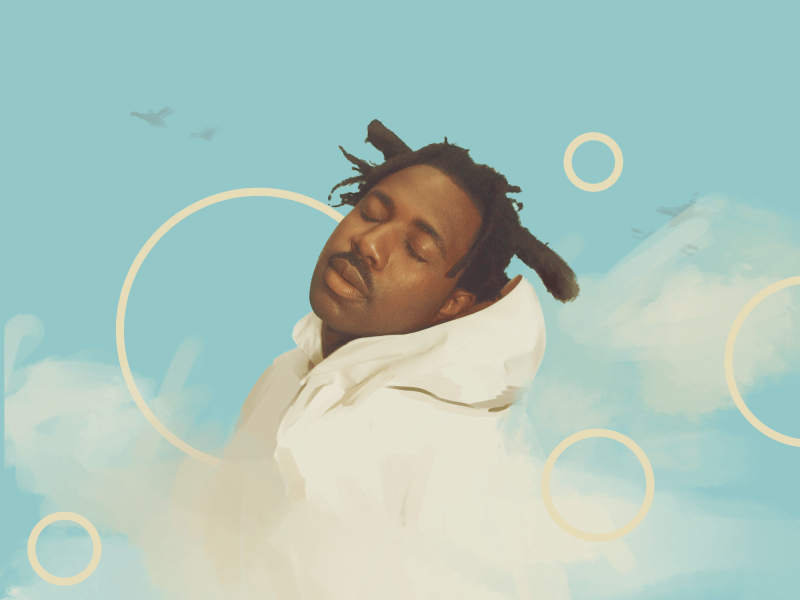Artists of this time are constantly seeking to reposition themselves and reinvent their art, be it through monikers or thematic shifts. South London musician Sampha is the latest to join the club.
Honoring his paternal grandfather, Sampha’s “Lahai” is a beautiful homage to family and lineage. His new album reveres the ways in which the significance of a name is transferred and continued, even beyond death.
Sampha’s obsession with time makes this clear. Memory and other chronological objects stitch through the album: in its opening track “Stereo Colour Cloud (Shaman’s Dreams),” again near the center of the album in “Suspended” and “Time Piece,” at the end in “Rose Tint.”
The existential nature of Sampha’s new music may have to do with the birth of his daughter. Fatherhood does weird things to people. It makes us reminisce on our own youth, holding up a mirror to everything we once were, and opens a litany of possibilities for what we can be. As Sampha bellows to his lover in “Satellite Business,” it is “through the eyes of [his] child” that he now views the world.
The song’s heavy-synth production style borders technopop. Björk-esque tinkles and warbles render time senseless. The sonic texture inspires a nonlinearity that pervades memory, prods it with a stick of uncertainty. Sampha is seeing with a child’s eyes once again. He questions the world, asking the necessary naivetes that enchant our lives with delight and wonder.
As he preempts in “Time Piece,” “le temps n’existe pas” (time does not exist). It is not the only arbitrator of life and death. Our spirit is relived through our children, through legacy — encircled, recycled and born anew.
He strings chords into parabolic rainbows — seeking to return, as a circle does, to the origin of his storytelling and genealogy. I believe that, at the heart of Sampha’s album, there is a circularity without definitive end. He uses it as an allegory of sorts, referencing the many different ways in which we linger long after our souls leave this Earth.
Lightness confounds in “Dancing Circles.” I love Sampha’s utility on the piano, and I’m glad he hasn’t abandoned his near-virtuosic relationship with the instrument. After strings of features with some of the biggest artists of our time (Drake, Beyonce, Kanye West, Kendrick), I was afraid that some of the electronic-heavy styles might overtake him. But they don’t.
In one word, the song embodies staccato. His falsetto leaps and hails. It skips, like a smooth pebble over water. One- and two-word stanzas etch his style here: “madness,” “flickering flashes,” “dancing, dancing.” Alliterative syllables produce an even greater bounce: they gallop restlessly, emphasizing “Lahai” as a fundamentally quick enterprise.
After Sampha won the coveted Mercury Prize in 2017 for his debut album “Process,” hordes of young teenagers and college students flocked to him. “Cult following” is an apt description here. This guy was new, sublime, full of youthful exuberance. He was accessible but lovely, fulfilling the new niche of R&B that resided somewhere between The Weeknd, Solange and Kelela.
“Lahai” may recognize this space, but it sometimes flits uncomfortably about within it. At times I was lost by the lack of specifics. The songwriting is thematically strong but generic. I think Sampha remains a little afraid to lean forcefully into all the burdens and revolutions a child brings to your life. In an act of safety, he dances around the answers — the grief, joy and even heaviness. Abstract qualities of time fly and falter throughout the album as they’re buttressed in even more elusive multilingual lyricism. The album is good, but it stops there — it suffices.
Like a caged bird who flutters ceaselessly against the walls of its prison, Sampha has found a door, and he is ready to soar. It leaves me wondering then: what is it that weighs him down? Will he ever return, or has he simply outlived the cage and all that it entails?
Editor’s Note: This article is a review and includes subjective thoughts, opinions and critiques.
